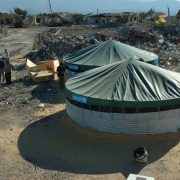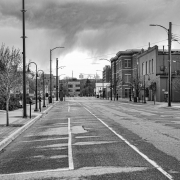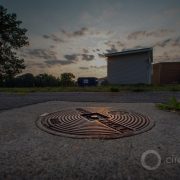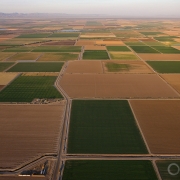HotSpots H2O: Financial Troubles Jeopardize Drinking Water Supply in Zimbabwe Capital
Harare, Zimbabwe. Photo courtesy of Max Pixel.
The main drinking water plant for Harare resumed treating water after a two-day shutdown last week that exacerbated shortages in a capital city that is already reeling from drought.
The deputy mayor of Harare said the temporary shutdown of Morton Jaffray plant was due to a lack of foreign currency to purchase treatment chemicals. The plant was restarted after officials acquired a week’s supply from another town.
Over the weekend, the national government released emergency funds to the Harare City Council that will be used to pay down debt with chemical suppliers and build stockpiles. Some of the funds will replace old distribution pipes in a system in which an estimated 60 percent of treated water is lost to leaks and theft.
The city’s long-term water treatment needs still must be resolved. City officials say 40 million Zimbabwe dollars ($2.7 million) per month are needed to maintain adequate treatment, but the city’s revenues have shrunk to around 15 million Zimbabwe dollars. One option the city is exploring is to change the mix of treatment chemicals in order to reduce the amount for purchase.
During the outage, many of Harare’s 4.5 million residents were forced to queue at boreholes on the outskirts of the city. Businesses, caught off guard, contemplated another operating uncertainty in a city with frequent power cuts. Children reported deteriorating sanitation conditions at schools. Locals also feared the spread of waterborne diseases. Last year, a cholera outbreak in Harare left 26 people dead, while an epidemic in 2008 killed 4,000 people countrywide.
The shortage in water treatment chemicals is the latest water challenge for Harare. Two of its water supply dams are dry as a result of drought and mismanagement.
Frustrated residents are imploring the government to prioritize water in the 2020 national budget, and to declare the current disaster a state of emergency.
Loreen Mupasiri Sani, director of the Combined Harare Residents Association, criticized the government for failing to invest in water after the 2008 cholera outbreak and says the situation has worsened in the past decade.
“There have been numerous outbreaks of cholera and typhoid since then, water shortages have progressively become worse over the years, but [the] government did not do anything despite numerous calls from residents associations to address the situation,” Sani said in a press briefing last week. She also called the country’s water issues a “health time bomb.”
For several years, the government has promised to begin construction on several large water projects in an effort to alleviate Zimbabwe’s chronic water issues. So far, however, the dams and other promised projects remain unstarted.
Kayla Ritter is a recent graduate of Michigan State University, where she studied International Relations and Teaching English to Speakers of Other Languages. She is currently based in Manton, Michigan. Kayla enjoys running, writing, and traveling. Contact Kayla Ritter











Leave a Reply
Want to join the discussion?Feel free to contribute!